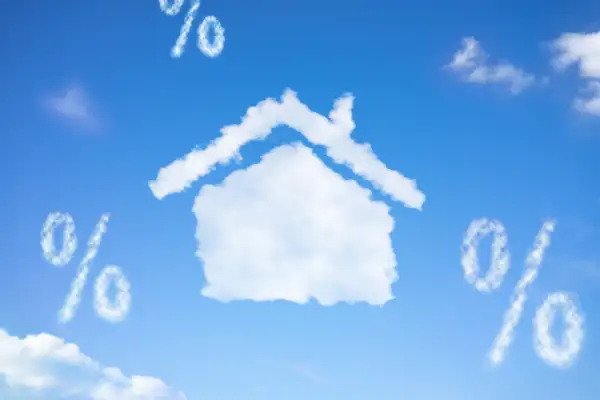The Latest Inflation Numbers Are Good News for Mortgage Rates

Hope for relief from rapidly rising mortgage rates was revived this week when October inflation numbers came in lower than expected.
Consumer prices continued to increase last month but at a slower pace than at any other point this year. The latest report from the Bureau of Labor Statistics indicates that year-over-year inflation fell to 7.7% in October, half a percentage point lower than the September reading of 8.2%.
The lower reading means that the Federal Reserve may finally ease up on its aggressive campaign to tame inflation, says Lisa Sturtevant, chief economist at Bright MLS, a home listing platform that serves the Mid-Atlantic region.
“I think they’re starting to see interest rate hikes have the intended effect,” says Sturtevant, allowing the Fed to “back off those regular increases to the federal funds rate.”
As a result, she expects mortgage rates could soon stabilize. Mortgage rates, as measured by Freddie Mac, have increased on an almost weekly basis since the beginning of the year and are currently above 7% — nearly 4 percentage points higher than they were during the first week of January. Half that increase has been just since August, a period when rates have been particularly volatile. (The news had an immediate effect on daily mortgage rate measurements, with Money’s average 30-year rate tumbling by more than half a percentage point between Wednesday and Thursday.)
However, Sturtevant doesn’t see mortgage rates dropping far from their current level for the time being. “All those factors that are propping up mortgage rates are still going to be in the ether,” adds Sturtevant.
Rates stabilizing around 7% may not sound like good news, but it’s a far better scenario than might have played out if inflation kept climbing.
The Fed indicated it would continue making large interest rate hikes until inflation showed signs of slowing, which Sturtevant says likely would have pushed mortgage rates toward 8%. Now, the Fed is more likely to make a smaller increase at its December meeting and mortgage rates are more likely to stick to a narrow range.
How high mortgage rates impact the housing market
While the Fed does not set mortgage rates, what it does with the federal funds rate (the rate banks charge each other for overnight loans) influences what lenders charge for all sorts of debt — including mortgages.
When the Fed reduced the fed funds rate to near zero at the start of the pandemic, mortgage rates fell dramatically. When they started hiking the federal funds rate in March to combat inflation, mortgage rates followed suit again.
Higher interest rates have dramatically increased the cost of buying a home this year. During the past three months, the mortgage payment on a typical starter home valued at $338,700 for borrowers able to put 10% down was $1,808, according to the National Association of Realtors. That’s up 49% from one year ago.
Higher rates have caused a chill in the housing market. In September, the most recent data available, existing home sales decreased by nearly 24%, according to NAR. Pending homes sales, a measure of signed sales contracts that have yet to close, were down even more.
It remains to be seen if mortgage rates are near a peak, but even a slower pace of rate gains would be good news for buyers. It would provide a little bit of breathing room to plan, and borrowers may find there are more financing options available to them.
Because there are fewer buyers on the market, lenders are competing for a smaller pool of applicants. Sturtevant notes that there is more variability in mortgage rates and terms in the market today than when rates were consistently below 3%.
“It definitely pays to shop around in this environment,” Sturtevant says. “The [7%] rate is not the number you’re necessarily going to get when you go and talk to a lender.”
More from Money:
Inflation Is Rising Slower Than Expected, and Stocks Are Soaring
A Record Low Percentage of People Say It's a Good Time to Buy a House


